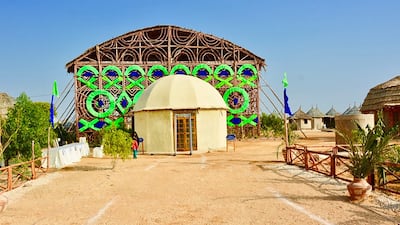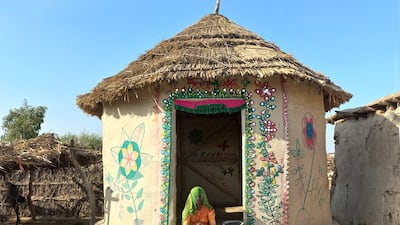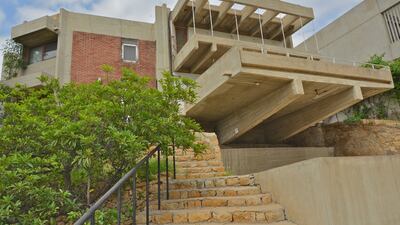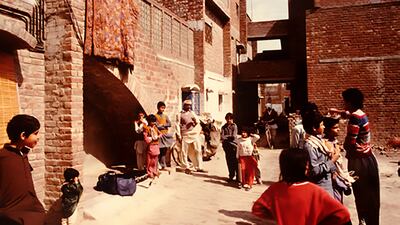Prof Yasmeen Lari, Pakistan’s first female architect, has been awarded the king's inaugural Royal Gold Medal for architecture for her zero-carbon, self-build houses for displaced people.
The prize, one of the world's highest accolades for architecture, was announced by the Royal Institute of British Architects.
The monarch personally approves the medal that is awarded to a person or group who have had a significant influence on the advancement of architecture.
The institute said Prof Lari was a “revolutionary force” who has had an “immeasurable influence on the trajectory of the architecture and humanitarian work in the country”.
Since officially retiring in 2000, she transferred her attention to creating accessible, environmentally friendly building techniques to help people below the poverty line and communities displaced by natural disasters and the effects of climate change.
In 1980 she co-founded the Heritage Foundation of Pakistan with her husband, Suhail Zaheer Lari, pioneering the design of self-build sustainable shelters and housing, creating 50,000 dwellings.
Buildings designed by architect Yasmeen Lari - in pictures
Prof Lari is also known for the design of the Chulah Cookstove, of which there are now over 80,000.
An eco-alternative to a traditional stove, it significantly reduces emissions, tackling unfavourable environmental and health issues associated with cooking on an open fire.
Born in 1941 in Pakistan, Prof Lari moved to London with her family at the age of 15.
After finishing school, she studied art for two years before being accepted into the School of Architecture, Oxford Brookes University, then Oxford Polytechnic.
After graduating in 1964, Lari returned to Pakistan at the age of 23 with her husband to establish her own architecture firm Lari Associates, going on to work for major government, business, and financial institutions.
Since 2000, Prof Lari has focused solely on her humanitarian work, which has gained international recognition.
King Charles is known for campaigning on green issues and for his commitment to sustainability.
As the Prince of Wales, the now King was often outspoken on architecture.
Speaking in 1984 about the proposed National Gallery extension, he famously stated: “What is proposed is like a monstrous carbuncle on the face of a much-loved and elegant friend.”
Prof Lari said on hearing of her award: “I never imagined that as I focus on my country’s most marginalised people, venturing down uncharted vagabond pathways, I could still be considered for the highest of honours in the architectural profession.
“RIBA has heralded a new direction for the profession, encouraging all architects to focus not only on the privileged, but also humanity at large that suffers from disparities, conflicts and climate change.”
Prof Lari’s previous designs include the Pakistan State Oil House.







